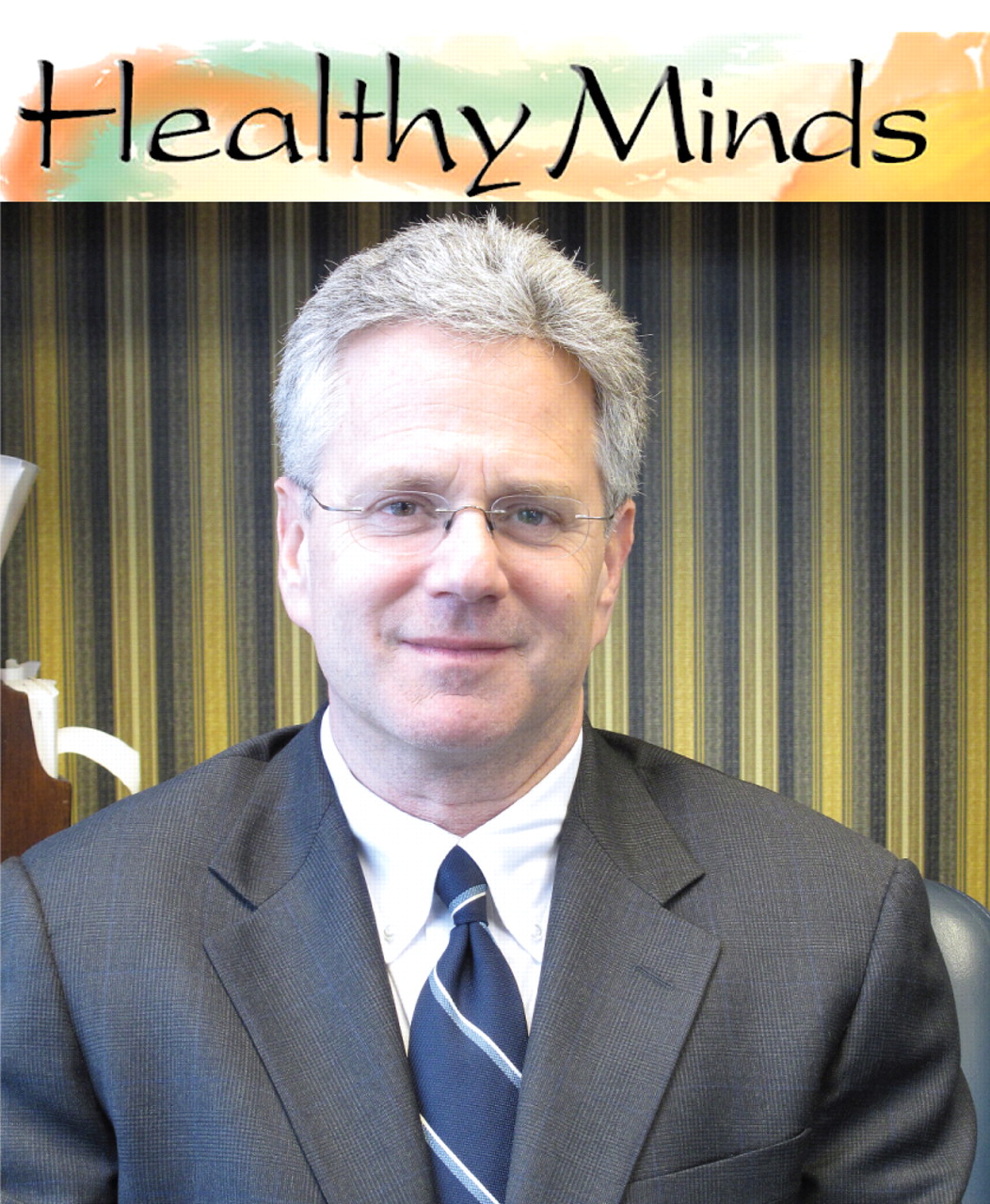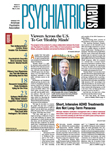A popular New York public television show on psychiatric topics is going national, with the help of the American Psychiatric Foundation.
“Healthy Minds” is a public television series produced by WLIW in New York, the nation's third largest public television station. And now, with the help of a $50,000 grant from the foundation, 16 of the shows will be distributed nationally to every public television station in the country.
Psychiatrists and foundation officials said that the show is the result of a remarkable synergy of interests shared by the foundation, APA's Office of Communications and Public Affairs, New York's public television production staff, and the public television audience. They also noted that “Healthy Minds” can be a major vehicle for educating the public about psychiatry and psychiatric illness and for promoting the projects of the foundation.
“My hope for the show is to encourage people who may have a psychiatric condition to seek help and not to suffer in silence,” said the show's host, psychiatrist Jeffrey Borenstein, M.D. “I end each show by saying, 'With help, there is hope.'
“The other major goal is to reduce stigma by having a combination of experts in the field explaining, for instance, that schizophrenia is a brain disorder and what that means, and also showing real people living with these conditions,” he told Psychiatric News. “I think the goal of educating the public fits in well with the mission of the foundation and also with the mission of public television. It's the right mix for collaboration.”
Borenstein is CEO and medical director of Holliswood Hospital in New York, a deputy representative of the Queens County Psychiatric Society to the APA Assembly, and a member of the APA Committee on Public Affairs.
Richard Harding, M.D., president of the foundation, echoed those comments.
“The American Psychiatric Foundation is proud to be the charitable arm of APA and is deeply committed to our mission to be a public educator on selected mental health issues,” Harding said in a statement. “We seek to serve people where they live, work, or learn with educational programs that are national in scope, but local in application. Our partnership, with PBS's affiliate WLIW-21 and the 'Healthy Minds' programs, offers the potential, on a national scale, to increase viewers' awareness of psychiatric conditions. Most importantly, it presents the opportunity to educate the public about mental health issues and to convey the message that help is available and treatment does work.”
“Healthy Minds” was born three years ago when Borenstein approached the public television station in New York about producing a half-hour show on psychiatric topics. It quickly proved to be popular with viewers and critics alike, winning four Telly Awards in 2007. (According to the Telly Awards Web site, the awards “honor the very best local, regional, and cable television commercials and programs, as well as the finest video and film productions, and work created for the Web.”)
And this year, the show won a Folio Award from the Fair Media Council.
So when Paul Burke, the foundation's executive director, met last year with APA's Committee on Public Affairs to discuss ways to promote the foundation's projects, Burke and Borenstein— who spoke at the meeting about“ Healthy Minds”—knew they had an opportunity on their hands.
For the 2008-2009 season, Borenstein and the staff at WLIW were interested in producing shows on adolescent mental health and mental health issues among returning military personnel—two areas in which the foundation has important projects. With the help of the foundation, shows were produced that featured the foundation's “Typical or Troubled” program, which is designed to help educators identify adolescents with mental health problems, and the “Give an Hour” program, in which psychiatrists and mental health professionals are encouraged to donate time to evaluate and treat military personnel returning from Iraq and Afghanistan and their families.
“We feel a palpable increase in the demand for quality mental health public education coming from all aspects of American life and society,” Burke told Psychiatric News. “As the public-educational arm of APA, we were looking for ways to advance awareness of our programs, and we saw 'Healthy Minds' as a showcase. And we collectively realized that a valued endorsement from APA would add credibility to the 'Healthy Minds' episodes.”
The foundation also agreed to fund the national distribution of the entire 13-episode 2008-2009 season and three episodes from the show's first season. While it is up to each public television station to broadcast the shows, they are expected to begin airing in September.
Borenstein said the format of each show includes interviews with expert clinicians and researchers, as well as with patients and families. The current season of shows to be nationally distributed begins with a two-part special on autism in which five families with children diagnosed with autism spectrum disorder share personal stories about diagnosis, early intervention, and treatment.
In addition to the shows on PTSD and military personnel and adolescent mental health, the new season covers schizophrenia, recovery from abuse, minority mental health, mental health in the workplace, eating disorders, obsessive-compulsive disorder, chemical dependency, and neurogenesis. Special guests include, among others, Judith Rapoport, M.D., a senior investigator at the National Institute of Mental Health; Nobel Prize–winner Eric Kandel, M.D.; and Jeffrey Lieberman, M.D., chair of psychiatry at Columbia University College of Physicians and Surgeons.
Borenstein and Burke said that they hope APA members will look for the show on a public broadcasting station near them and urge their local station to air the show if it is not already.
“We want to encourage people to watch the series,” Borenstein said. “Psychiatrists may get queries about the shows, which will offer another opportunity to educate the public. We have gotten very good feedback about the series, and one common thread is that it opens up discussions in families where previously there was no discussion about mental health. We think that is very powerful.”
More information about “Healthy Minds,” including streaming videos of the new episodes, can be accessed at<www.wliw.org/productions/local/healthy-minds/season-two-overview/164>.▪


